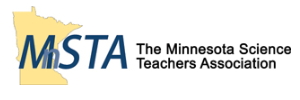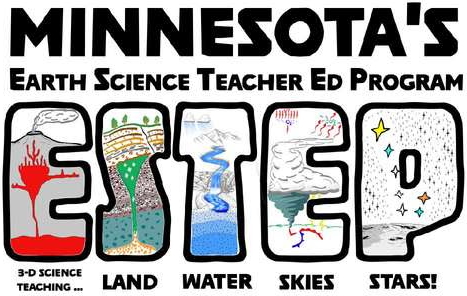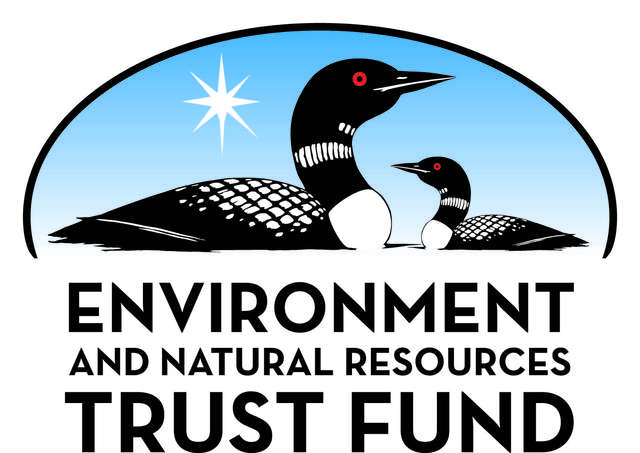Top > In the News... > Advocacy Update: Legislative and Resolution Changes
 |
Hello MnSTA Members,
This past legislative session was a whirlwind to say the least, but we would like to report on a significant change in statute regarding Graduation Requirements in science, as well as an extension of the flexibilities in science licensure instituted by PELSB in 2021.
CHANGE IN STATUTE: GRADUATION REQUIREMENTS
Minnesota Statutes 2022, section 120B.024, subdivision 1, is amended to read:
Subdivision 1. Graduation requirements.
(3) three credits of science, including one credit to satisfy all the earth and space science standards for grades 9 through 12, one credit to satisfy all the life science standards for grades 9 through 12, and one credit to satisfy all the chemistry or physics standards for grades 9 through 12;
EFFECTIVE DATE.
This section is effective for the 2024-2025 school year and later.
CONTINUATION OF PELSB RESOLUTION FOR FLEXIBILITY IN SCIENCE LICENSURE
On March 12, 2021, the PELSB Board adopted a resolution (see attached) to help support teachers and schools navigating changes to the K-12 science standards and benchmarks. PELSB extended this resolution into the 2023-24 school year. This resolution will be in effect until the PELSB Board adopts new rules to determine long-term options for teachers impacted by the changes to the K-12 science standards. The rulemaking process for science licensure begins in 2023.
The resolution provides additional flexibilities for science teachers who will need an out-of-field permission (OFP) to teach in a science content area or grade level outside of the scope of their existing license(s) due to the impact of the 2019 science standards. This means districts can seek an out-of-field permission (OFP) for impacted Tier 3 and Tier 4 science teachers without needing to meet the OFP posting requirements AND these OFPs will not be counted toward the lifetime total for those Tier 3 or Tier 4 science teachers affected by the changes in the 2019 science standards.
Here are a few examples of the applications of this resolution:
-
A Tier 4 teacher who holds a 7 -12 Earth and Space Science license: The district and teacher would like the teacher to teach Earth & Space Science at the 6th grade level during the 2023-24 school year.
-
A Tier 4 teacher who holds a 7 -12 Earth and Space Science license: The district and teacher would like the teacher to teach Physical Science at the 8th grade level during the 2023-24 school year.
-
A Tier 3 or Tier 4 teacher who holds either a 9 - 12 Physics or 9 - 12 Chemistry license: The district and teacher would like the teacher to teach Physical Science at the 8th grade level during the 2023-24 school year.
These changes in legislation and resolution came about because of your involvement and feedback during the listening sessions with MDE and PELSB, and MnSTA's work with representatives from both organizations. Thank you for attending these sessions, writing letters, reaching out to your spheres of influence, and being engaged and involved in these processes. Members of the MnSTA Board of Directors testified before legislative committees and worked with partner organizations to advocate for high quality, equitable and accessible science education for all Minnesota students, by teachers that are prepared and qualified to do so.
The MnSTA board and Advocacy committee will continue this work as PELSB begins the rulemaking process for science licensure based on the 2019 standards, as well as working with MDE and PELSB as we advocate for updating the Common Course catalog to reflect the requirements of the new standards and other oversights to ensure that ALL MN students are getting the comprehensive and quality science education they deserve, and that MN science teachers are getting the support they need to be successful as well. As a stakeholder in this endeavor, consider making yourself available to district leadership as they navigate these changes, and use this knowledge to serve as an advocate for your students and for science education.
As always, thank you for your dedication to your craft and your students! Have a fantastic summer, and we wish you warmth, rest and quality time with your people.
Sincerely,
MnSTA Advocacy Committee
Download PELSB "Resolution to support teachers and schools navigating changes to the K-12 science standards and benchmarks "









 Minnesota science teachers should know about:
Minnesota science teachers should know about: